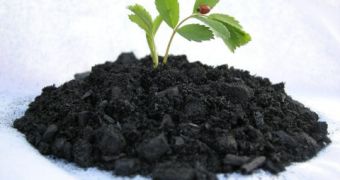The University of Colorado Boulder made it public news that one of its doctoral students, Joshua Kearns, believes that he has found a financially-friendly solution to significantly improve on the water quality in developing countries.
Apparently, his idea is both simple and highly efficient: Joshua Kearns maintains that locally produced biochar can be used as a filtering system, which will allow for the removal of bacteria and pesticides from the communities' drinking water sources.
For those unaware, biochar is basically charcoal made out of organic waste such as corn cubs, sugar cane, bamboo and similar natural resources which are easily found in our proximity.
Apparently, as explained on the University of Colorado Boulder's website, the idea to filter water using charcoal is by no means a new one.
However, using biochar as a substitute for char might prove to be a much more efficient and environmentally friendly option.
Thus, it would be considerably easier for the people in developing countries to obtain this filtering material, and the ecological footprint of this technology would by significantly diminished.
Moreover, the overall costs for providing indigenous communities with clean drinking water would be reduced to quite a large extent.
Having just returned from Thailand, where he spent six months testing and improving on his idea, Joshua Kearns explains how “Nobody has studied this, and there are actually millions of people who could benefit from it.”
He also argues that “My philosophy is to empower people to use their resources sustainably and solve problems for themselves.”
Given the fact that a lot of people living in developing countries more often than not get sick because they lack clean water sources, it is a good thing that efforts are made to help solve this problem as soon as possible.
Hopefully, it will not be long until this technology developed by Joshua Kearns will be used to clean contaminated waters of various bacteria and pesticides that threaten public health.

 14 DAY TRIAL //
14 DAY TRIAL //